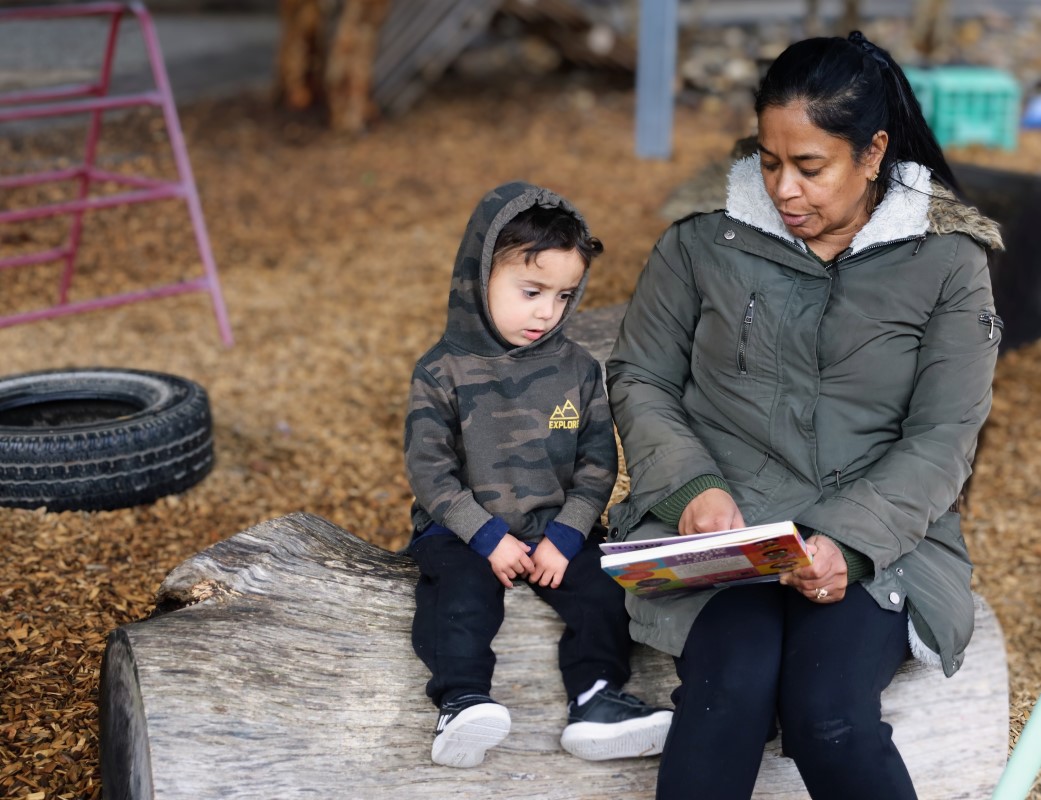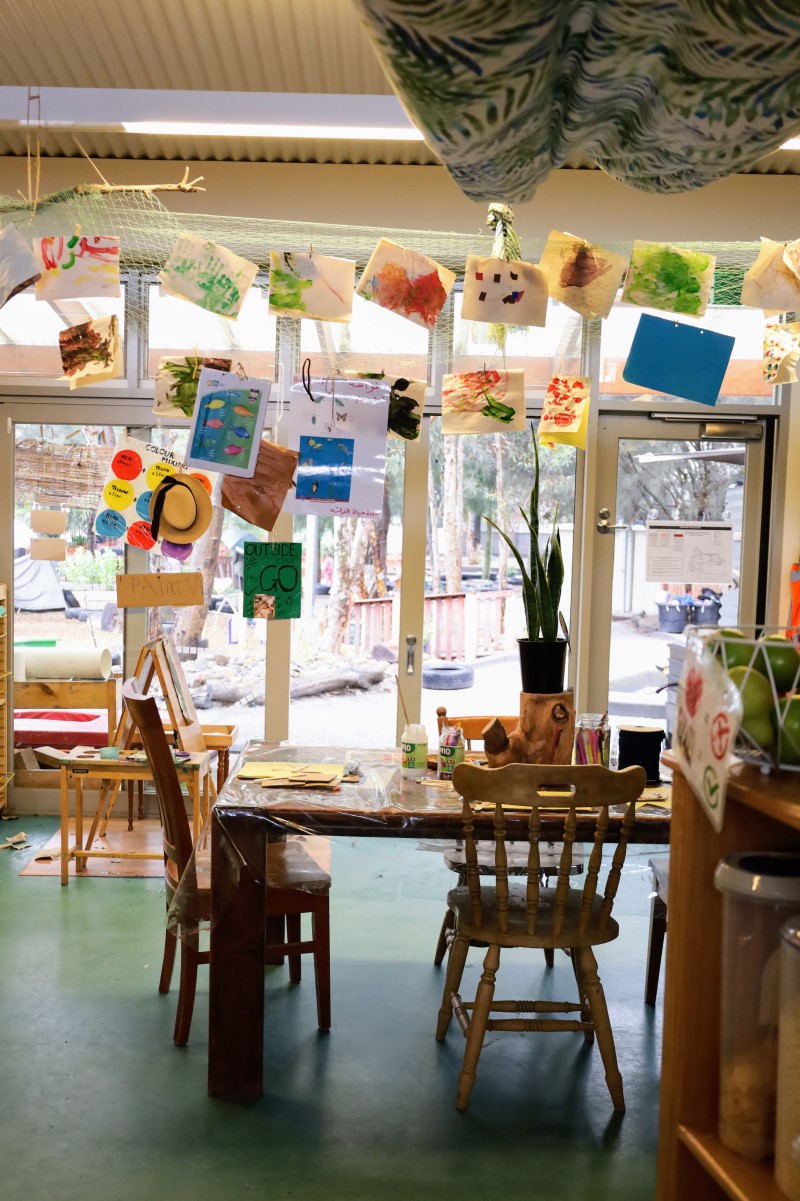Forming strong relationships with new children and their families is an essential part of the role for Gowrie Victoria educators. A sense of community is developed through these collaborative relationships, which allows the children to grow and thrive in their learning journey.
Early Years Leader Ebony Lee says it’s important to create a sense of belonging from the beginning. “It can be a challenging time for families,” Ebony says. “We begin the term with a key focus on those relationships.
“When new children start, we display family photos and try to give our spaces a homey feel. This involves setting up a home-corner, including realistic furniture and keeping the space calm and inviting, with natural resources. The aim is for children to see the space as an extension of their home.”
Broadmeadows Valley Early Childhood Educator Hilda Hirmiz says the process begins before a child’s first day, through discussions with families, an extensive questionnaire and an orientation period.
This helps deepen the understanding of each child and their family, including likes and dislikes, cultural background, and anything the family would like to see incorporated into their child’s learning journey.
“It’s important to build those relationships with families and children during the orientation process to create that sense of security and ensure the transition goes smoothly,” Hilda says. “It can be an anxious time and we want families to feel welcome and reassured, knowing their child is being cared for.”
At Gowrie Victoria, families are acknowledged as children’s first teachers and collaborative partnerships are encouraged between the early learning service and home to help build each child’s sense of belonging and ensure a consistency of care and understanding. Programs are then developed based on the needs and interests of children and their families.
“We welcome input from families, and they are encouraged to come in and support the program, where possible, whether that’s making something with the children or reading a story,” Hilda says. “This helps create our feeling of community.”
Ebony says communication is a crucial element in building rich, trusting relationships with new families and helps create a solid foundation for educators to begin working with children. This communication can happen through conversations at drop-off and pick-up times, emails, phone calls, newsletters, portfolio entries, assessments and interviews. Artwork displays, cultural celebrations, stories, photos and video footage also contribute to the formation of strong bonds between each home and early learning service.


